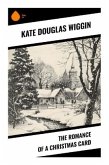In "The Idol of the Blind," Tom Gallon weaves a compelling narrative steeped in psychological depth and social critique. Set against the backdrop of early 20th-century England, the novel explores the lives of its flawed characters, revealing their struggles with identity, perception, and the quest for meaning in a rapidly changing world. Gallon employs a crisp, realistic prose style that captures both the internal tumult and external circumstances faced by his protagonists, reflecting the broader literary movements of his time, including Naturalism and the emerging modernist sensibilities that sought to peel back the layers of human consciousness. Tom Gallon, a prominent figure in Victorian and Edwardian literature, found his voice amidst the turbulence of his era. His experiences-ranging from his work as a journalist to his time spent in the theatrical world-richly informed his writing, allowing him to capture the nuances of human experience with authenticity and empathy. Gallon's keen observations of social stratification and the human psyche make "The Idol of the Blind" a poignant exploration of universal themes that resonate even today. Readers are encouraged to engage with this novel as a profound commentary on blind ambition and societal expectations. "The Idol of the Blind" not only serves as a mirror to its time but also prompts reflection on contemporary issues regarding perception, desire, and the pursuit of happiness.
Bitte wählen Sie Ihr Anliegen aus.
Rechnungen
Retourenschein anfordern
Bestellstatus
Storno








